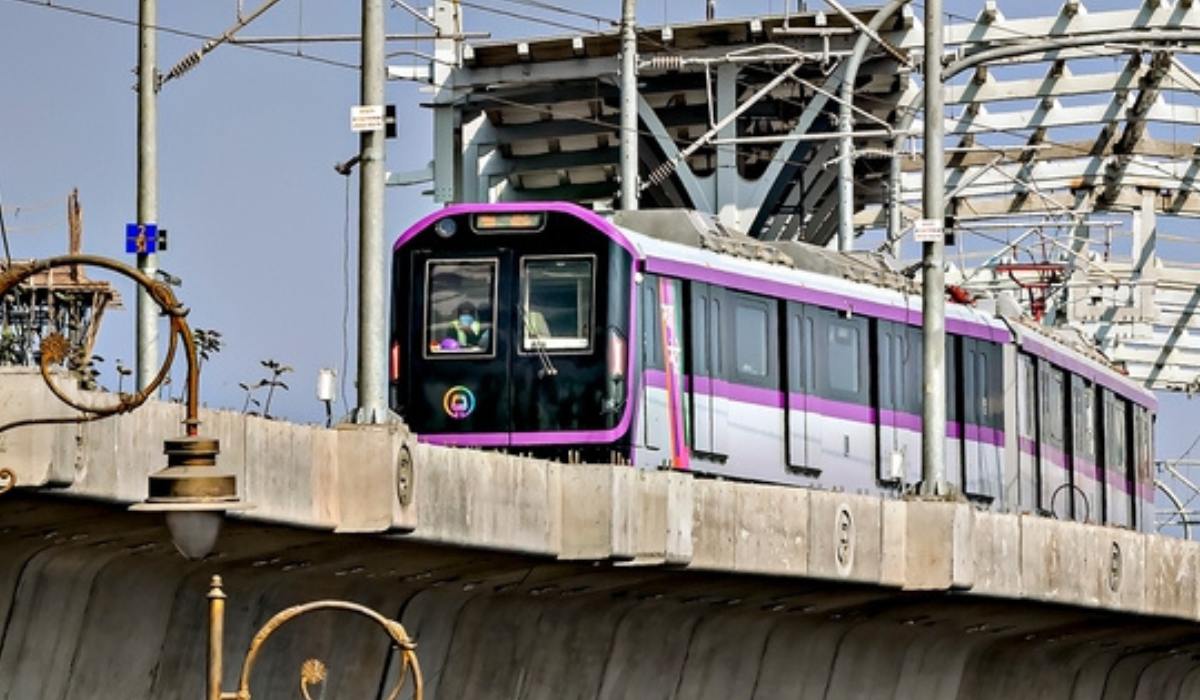Mumbai Metro Line-9, connecting Dahisar East to Kashigaon, is on track to open by the end of this year. This significant development in Mumbai’s expanding metro network is expected to dramatically enhance connectivity between the northern suburbs and the rest of the city, providing much-needed relief to commuters who rely on overcrowded roadways.
The Mumbai Metropolitan Region Development Authority (MMRDA), which is spearheading the project, has fast-tracked the construction of this 5.5 km stretch, with the aim of completing it by the year’s end. This new metro line will reduce travel time for passengers commuting between Dahisar and Kashigaon, offering an efficient alternative to the heavily congested roads. To ensure timely delivery and high-quality standards, MMRDA has embraced the latest technologies and appointed dedicated team leaders to oversee the progress of the project. According to officials, advanced global expertise is being harnessed to keep the construction process on schedule. “We are focused on compressing timelines and ensuring the highest quality of execution,” said an MMRDA official involved with the project. Metro Line-9 is an extension of Metro Line-7, a vital corridor that connects Dahisar East to Mira Bhayandar. The first phase of Line-9, which will run from Dahisar East to Kashigaon, will improve access to key areas of Mumbai’s northern suburbs and provide much-needed relief to commuters. Phase 2 will extend the line further, reaching Subhash Chandra Bose Stadium, creating a seamless metro corridor connecting diverse parts of the city. A crucial aspect of the project is its two key interchange stations. At Dahisar East, passengers will be able to connect with Metro Line-7 and Metro Line-2, while Kashigaon will link to the upcoming Metro Line-10. These interchange stations are designed to provide greater accessibility and improve the overall efficiency of Mumbai’s metro network, which is expanding rapidly to accommodate the city’s growing population.
The completion of Metro Line-9 will bring major improvements to Mumbai’s transport landscape. Traffic congestion has long been a pressing issue for the city, particularly along the western suburbs. By offering a faster and more sustainable mode of transport, the metro line will provide an essential alternative to private vehicles and overcrowded buses, reducing the burden on the city’s road infrastructure. Urban mobility experts have lauded the metro project, noting that it is a critical step in addressing the city’s transportation challenges. “The expansion of the metro network is crucial for improving urban mobility and reducing congestion,” said an urban transport expert. “As more phases of the metro are completed, the city will see significant improvements in travel times and overall quality of life for commuters.” Beyond reducing traffic, Metro Line-9 will also help mitigate the environmental impact of transportation in Mumbai. With the city facing air pollution and congestion, the metro offers a cleaner, greener alternative to fossil fuel-based transport options. The increased use of public transport is a key element of Mumbai’s strategy to tackle pollution and promote sustainability in the long term. The first phase of Metro Line-9 from Dahisar to Kashigaon is expected to ease the daily commute for thousands of residents and workers in the region, connecting them more effectively to the city’s other transport hubs and commercial centres. As the metro line nears completion, MMRDA is confident that it will be a game-changer for suburban Mumbai, addressing the pressing need for faster, more reliable, and environmentally friendly public transport options.
With the rapid pace of development in the suburbs, Metro Line-9 is set to play a central role in connecting Mumbai’s outer areas to the city’s core, making it an integral part of Mumbai’s transportation ecosystem. The completion of the first phase of Metro Line-9 is just one step towards the city’s goal of expanding its metro network and improving mobility for its residents, all while promoting a sustainable, equitable, and cleaner future for Mumbai.


